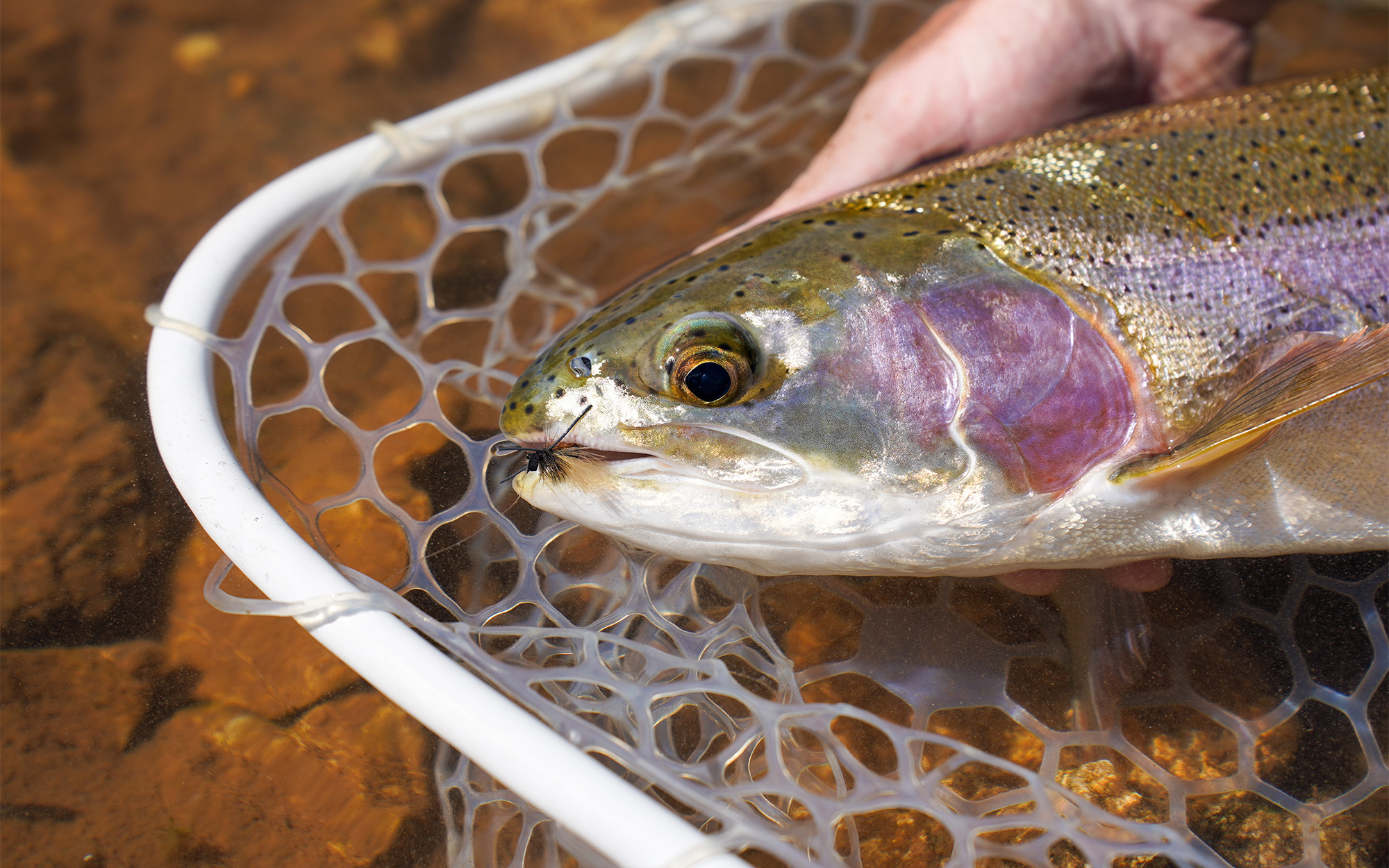
Denver, Colorado, is usually celebrated as one in all America’s best fly-fishing hubs. It lies only a brief drive from numerous trout streams, together with the legendary tailwaters of the South Platte, and it has one of many highest concentrations of fly anglers of any main metropolis within the Rocky Mountain West. However a poll initiative dealing with Denver voters this November might change all that by banning one of many sport’s most important elements: animal fur.
The citizen-led ballot measure, often known as the Denver Fur Ban Initiative, is being spearheaded by the animal rights group Pro-Animal Future. It will particularly prohibit “the manufacture, distribution, show, and sale or commerce of sure animal fur merchandise inside the metropolis and county of Denver.” This would come with lots of the supplies generally used to make conventional flies and fishing lures, corresponding to deer and elk hair and rabbit fur. And it’s generated actual considerations amongst Colorado’s angling and conservation communities, who say it might have an outsized affect on the native fly-fishing business and past.
Learn Subsequent: Lion Hunting Ban Qualifies for Colorado’s November Ballot
Though the ban does enable for “restricted exceptions to the prohibition,” the ban’s proponents have clarified with Out of doors Life that the pure fur supplies used for flies and lures wouldn’t be amongst these exceptions. Additionally they say the Denver ban is only the start.
Pressured Options?
Fly fishing is greater than only a pastime in Colorado. It’s a main financial driver that helps the state’s roughly $13.9-billion outdoor recreation industry. And it wouldn’t be doable to fly fish there with out the flies, a lot of that are made with fur, feathers, and different pure supplies. Banning the sale of those flies (and/or the supplies used to make them) would decimate Denver’s thriving neighborhood of fly retailers, says President and CEO of the Fly Fishing Show Ben Furimsky.
“They’re known as fly retailers for a motive,” Furimsky tells Out of doors Life. “The primary revenue-generating gadgets in most fly retailers are the flies. It’s like saying you’re going to ban golf balls within the golf business.”
Natalie Fulton, a spokesperson for Professional-Animal Future, is conscious that the ban would come with some supplies generally utilized in fly fishing. She says fly fishermen and others simply have to adapt. (Typical anglers could be affected as nicely since some lures, like bucktail jigs, name for a similar pure supplies.)

Photograph by Cameron Evans
“There’s loads of various supplies for fly fishermen,” Fulton tells OL. “A whole lot of them don’t use fur, so this is able to encourage them to maneuver in a extra moral path.”
Fulton clarifies that whereas her group has obtained pushback from native anglers, they don’t seem to be taken with exemptions for the fly-fishing business. And even when they have been, she says it’s seemingly too late within the course of.
“They’ve been actually critiquing us and saying that we don’t perceive the implications, simply because we wish them to make use of totally different supplies,” Fulton mentioned. “What I wish to see is all fur banned, and folks utilizing options.”
No Substitute for the Actual Factor
To Fulton’s level, there are many artificial supplies utilized in fashionable fly-tying and lure-making. A few of these, like craft fur, are designed to imitate the actual factor. Nonetheless, any seasoned angler or fly tier will let you know there may be nonetheless no substitute for pure fibers like feathers and fur, which have lengthy been part of the game’s heritage.
“We use a number of synthetics, however the historical past and the pure nature of it are the fur and feathers,” Furimsky says.
Artificial supplies additionally don’t “breathe” or shed water the identical means as fur when fished. And most synthetics are made out of polymeric fibers, that are primarily plastic.
Learn Subsequent: A Fur Ban in Washington Could Cripple Fly Tyers, Lure Makers, and the Larger Fishing Industry
“A whole lot of fishermen don’t like synthetics as a result of it’s most likely a rubber or plastic, and people are oil-based merchandise they usually’ll result in microplastics within the setting,” explains Landon Gates, the marketing campaign supervisor for Fingers off my Hat.
Gates is one in all many opponents to the Denver Fur Ban as a result of it will additionally apply to cowboy hats made with beaver pelts and different conventional fur merchandise. Some tribal leaders have argued that the narrowly worded cultural exemptions included within the poll measure might infringe on Native American traditions.

Photograph by Cameron Evans
“It will get to that subject of having the ability to have a good time our tradition and western heritage and our historical past, if you’ll,” Gates says. “Flies are as a lot part of your id as a fly fisherman as a cowboy hat is to a cowboy or cowgirl.”
Denver isn’t the primary place to discover a fur ban, both. The close by metropolis of Boulder handed a fur ban in 2021, though Gates says the ban’s language was crafted in order that it wouldn’t have an effect on the sale of flies. (It’s unclear how the latest Boulder ban has affected the sale of fly-tying supplies, or if this component of the ban is presently being enforced.) Comparable payments have additionally appeared in Oregon, California, and Washington State lately. The proposals in Oregon and Washington failed, whereas California’s ban went into impact in 2023.
Slicing into Conservation Funds
The monetary impacts of a Denver Fur Ban would additionally lengthen past the town’s fly retailers and fishing circles. The Colorado Chapter of Trout Unlimited is urging its members to vote towards the initiative, citing the impacts it will have on essential conservation funding.
Learn Subsequent: A Big Cat Hunting Ban Would Cost Colorado More Than $60 Million, Study Shows
Identical to lures, fish finders, and spinning rods, each fly offered within the U.S. is topic to excise taxes below the Dingell-Johnson Act. A whole lot of the proceeds from these taxes are directed to state fish and wildlife companies, the place they assist fund every kind of fishery administration and wildlife conservation packages.
“Meant or not, this ordinance is affecting conservation,” says Kyle Perkins, the communications coordinator for TU’s Colorado chapter. “It’s a risk to our members and our companions, and it begins in Denver. Who is aware of how large it might go?”
Fulton has a solution to that remaining query, too.
“We’d like to go statewide,” she says. “We’re not going to cease combating till fur is a factor of the previous.”
Trending Merchandise










